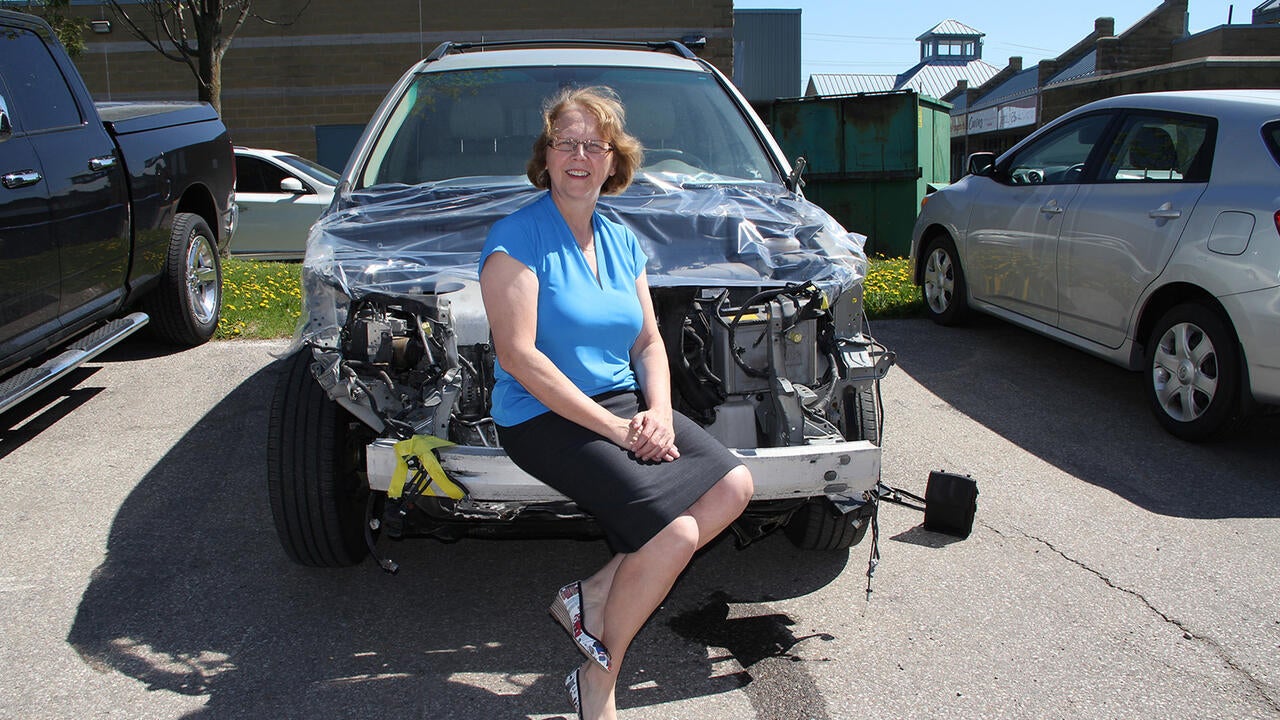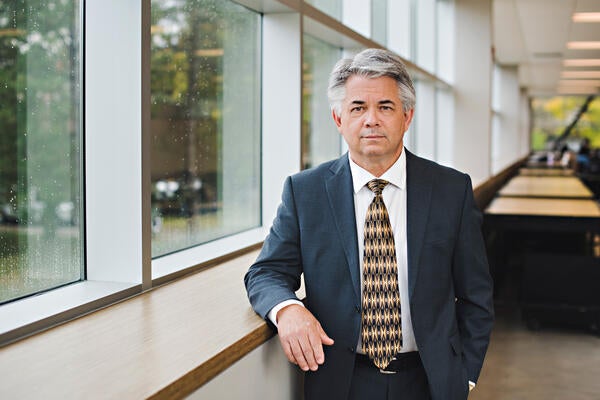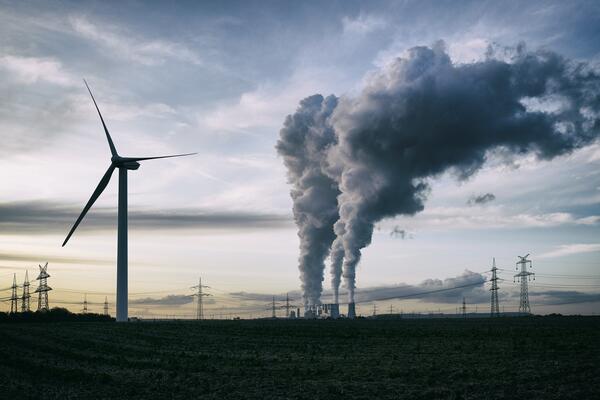
Keeping roads safe in our changing climate
Dean Andrey ‘s research has made roads safer for millions of drivers with the winter severity index

Dean Andrey ‘s research has made roads safer for millions of drivers with the winter severity index
By Sam Toman Faculty of EnvironmentNearly every Canadian has found themselves in a situation where they must get behind the wheel of a car during terrible weather conditions. Whether it’s a trip to the airport, a commute to work, or an early morning hockey practice, how quickly and effectively roads get cleared is an important factor in our safety.
 Jean Andrey, dean of the Faculty of Environment, has spent decades helping governments across Canada keep our roads safe — a task made even more important as the number of days drivers battle extreme weather continues to rise due to climate change.
Jean Andrey, dean of the Faculty of Environment, has spent decades helping governments across Canada keep our roads safe — a task made even more important as the number of days drivers battle extreme weather continues to rise due to climate change.
Common understanding of climate change is that the planet is warming gradually. While true, hidden inside this warming trend are wild shifts in weather patterns are becoming harder to predict. These extreme shifts have put new pressures on governments to deploy resources at the right time — and under budget.
The two greatest environmental risks for the average driver are reduced friction and impaired visibility. Driving in the rain and snow is nothing new for Canadians. But climate change is likely to result in more and more unwelcome surprises for motorists, as some regions may experience heavier snowfalls, while other parts of Canada may experience increased rainfall. It’s a complex problem requiring more than just knowing how much more precipitation there will be.
“The story is regional,” explains Andrey who is working with the Transportation Association of Canada to provide them with data they can use to help different Canadian jurisdictions adapt to the specific climate changes in their communities. “Some regions are likely to have fewer weather-related collisions and others are likely to have more.”
Andrey’s research has made roads safer for millions of drivers by working with the governments of Ontario and Alberta to develop a simple-to-use winter severity index. Her methodology helps communities anticipate extreme weather patterns by assigning a daily weather score they can use to effectively deploy winter maintenance equipment and keep roads snow-free.
Arguably some of the most pressing challenges of our time is addressing the consequences of our changing climate and the implications of living in the warmest period in the history of civilization. Some of these challenges will be highlighted at the upcoming Waterloo Innovation Summit on November 13 in Vancouver. Andrey will be a featured panelist at the event to offer her expertise in creating transportation systems and cities that are both safe and environmentally sustainable. She will be joined by Harold Javid from Microsoft, Kirsten Sutton from SAP Labs Canada and Mark Crowley from the faculty of Engineering at the University of Waterloo to discuss how new innovations in technology hold big potential to help address global environmental challenges.
To learn more about the event, please visit the Waterloo Innovation Summit website.

Read more
Professor Blair Feltmate says simple changes like adding curbs and water sensors can potentially save lives

Read more
As the world commemorates Earth Day 2024, a Waterloo researcher shares how we can unlock more Canadian restoration solutions with community and academic collaboration

Read more
Waterloo launches first-of-its-kind interdisciplinary graduate diploma in climate change to provide additional resources for the global climate crisis
The University of Waterloo acknowledges that much of our work takes place on the traditional territory of the Neutral, Anishinaabeg and Haudenosaunee peoples. Our main campus is situated on the Haldimand Tract, the land granted to the Six Nations that includes six miles on each side of the Grand River. Our active work toward reconciliation takes place across our campuses through research, learning, teaching, and community building, and is co-ordinated within the Office of Indigenous Relations.